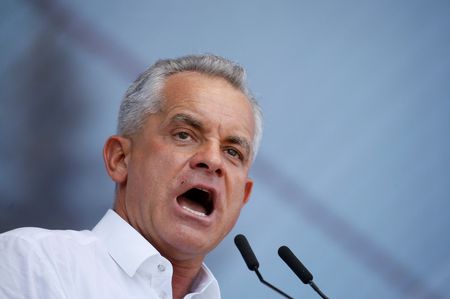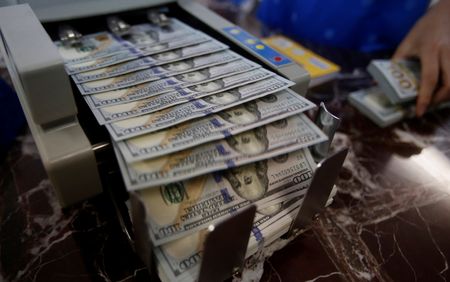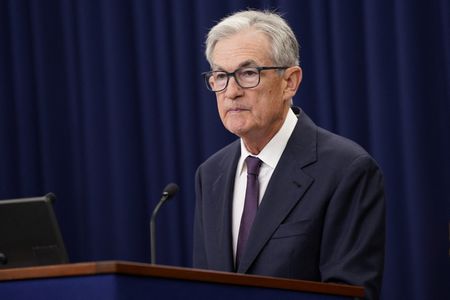ATHENS/CHISINAU (Reuters) -Greece has suspended the extradition to Moldova of business magnate and former politician Vladimir Plahotniuc who is sought by Chisinau over a 2014 mass fraud case, a Moldovan prosecutor and a Greek legal source said on Wednesday.
A Greek court had ruled in favor of his extradition on charges related to a fraud case known in the ex-Soviet state as the “theft of the century” next week, days before Moldova holds a general election on Sept. 28.
“The extradition of Vladimir Plahotniuc to the Republic of Moldova has been suspended, with no reason indicated,” the Moldovan prosecutor general’s office said, adding that it had been notified about the decision by Interpol.
Plahotniuc, 59, has denied wrongdoing.
A Greek legal source said on condition of anonymity that the Greek justice ministry suspended his extradition as Plahotniuc is also being probed by Romania for forgery and had been asked to provide explanations to a Greek prosecutor on the case.
Plahotniuc was arrested on July 21 at the Athens airport after boarding a plane to Dubai. Greek police acted on an Interpol notice issued in February which states that he held 16 passports, including from Romania, Mexico and Russia.
He is the chief suspect in a case related to the disappearance in 2014 of $1 billion from the Moldovan banking system — the equivalent at the time of 12% of the ex-Soviet state’s GDP. The accusations include participating in a criminal organisation, money laundering, bribery and fraud.
Russia had also sought his extradition over drug offenses.
“We – the citizens of this country – must ensure that everyone is brought to justice and that this process is not stopped,” Moldovan Prime Minister Dorin Recean posted on Facebook, adding that the government would investigate the decision.
“The institutions must bring him home in handcuffs.”
In a statement on social media this month, Plahotniuc described all allegations against him as being based on “slander and political hatred.”
Before fleeing Moldova, Plahotniuc was the leader of the Democratic party from 2016-2019, part of the governing coalition at the time. Moldova hopes to join the European Union by 2030.
(Reporting by Yannis Souliotis in Athens and Alexander Tanas in Chisinau; Writing by Renee Maltezou, Editing by Ronald Popeski)










